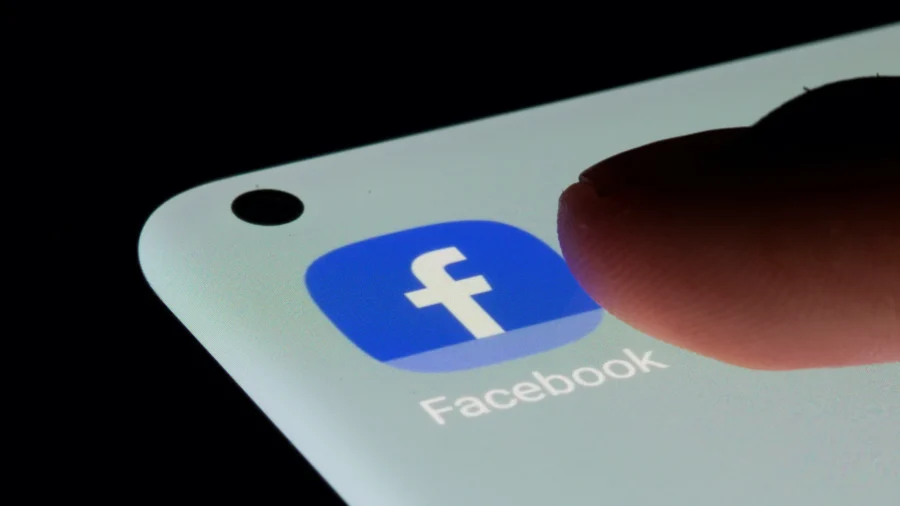The Florida House passed a bill on Wednesday to ban social media use for people under the age of 17 to limit the negative effects on their psychological state and development.
The new bill, following a bipartisan 106 to 13 vote, is now going to the Senate. If passed, it will require social media companies to delete all accounts of people 16 years or younger, and cooperate with a third-party identification partner to identify accounts of people younger than 17 by using IDs or driver licenses.
“We must address the harmful effects social media platforms have on the development and well-being of our kids,” said Florida House Speaker Paul Renner.
“Florida has a compelling state interest and duty to protect our children, their mental health, and their childhood.”
The bill, HB1, would also require firms to permanently delete personal information collected from the terminated accounts and let parents bring civil suits against those failing to do so.
It follows similar laws passed in Utah, Kansas, Texas, Louisiana, and Ohio in 2023.
Sponsors said the measure was necessary to protect children from depression, anxiety, and other mental health woes they say are linked to excessive use of social media, whose addictive aspects critics say make children especially vulnerable.
Opponents argued that the bill goes too far, with some urging less restrictive measures, such as letting parents opt in or out of allowing their children to use social media.
Meta, the parent company of Instagram and Facebook, opposed the legislation, saying it would limit parental discretion and raise data privacy concerns.
“HB 1 would require each new social media user, from a 13-year-old in Miami to a 73-year-old from Boca Raton, to provide possibly sensitive identifying information, such as a driver’s license or birth certificate to a third-party organization to verify their age,” Meta’s Caulder Childs told the House’s Judiciary Committee at a hearing on Jan. 17.
Meta says it supports federal legislation for online app stores to secure parents’ approval for downloads by teenagers younger than 16.
The Florida measure does not identify any internet companies by name.
Instead, it defines a social media platform as an online forum that tracks account holders’ activity by letting them create user profiles, then upload content or view the content or activities of other users and interact with, or track, them.
Among the defining social media functions highlighted by the bill are “addictive, harmful or deceptive design features” or those that induce “an excessive or compulsive need to use or engage with” the platform.
But the measure exempts websites and applications whose predominant function is email, messaging, or texting, as well as streaming services, news, sports, and entertainment sites, along with online shopping, gaming, and academic sites.
Previous Lawsuits
A lawsuit against Meta in December last year alleged the social media juggernaut prioritized company growth ahead of the safety of its younger users, while the company refutes these claims and says it has devoted a lot of time and resources to keep minors safe online.
The lawsuit was filed by New Mexico Attorney General Raúl Torrez against Meta Platforms, its subsidiaries, and CEO Mark Zuckerberg over allegations the company’s social media platforms were unsafe for children.
In the lawsuit filing, Mr. Torrez alleged that Meta fails to remove child sexual abuse material across its platforms and enables adults to find, contact, and solicit underage users.
He also argued that Meta harms children and teenagers through the addictive design of its platform, degrading users’ mental health, their sense of self-worth, and their physical safety.
Meta has already been the subject of a separate lawsuit from October 2023, when 33 states claimed it is harming young people and contributing to the youth mental health crisis by knowingly and deliberately designing features on Instagram and Facebook that addict children to its platforms.
“Mr. Zuckerberg and other Meta executives are aware of the serious harm their products can pose to young users, and yet they have failed to make sufficient changes to their platforms that would prevent the sexual exploitation of children,” Mr. Torrez said.
“Despite repeated assurances to Congress and the public that they can be trusted to police themselves, it is clear that Meta’s executives continue to prioritize engagement and ad revenue over the safety of the most vulnerable members of our society,” he added.
According to Mr. Torrez, his office gathered most of their evidence for the lawsuit through an undercover investigation of Meta’s platforms, creating decoy accounts of children 14 years and younger.
In recently unredacted documents, it has been revealed Meta employees were aware of a significant volume of inappropriate and sexually explicit content being shared between adults and minors.
Reuters and Stephen Katte contributed to this report.


